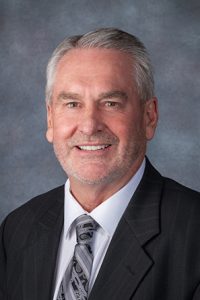Extracurricular activity policies for home-schoolers proposed
Home-schooled students could participate in a public school district’s extracurricular activities without also enrolling in the district’s classes under a bill heard Jan. 25 by the Education Committee.
Current state law requires public school boards to allow students enrolled in private, denominational, parochial or home schools to enroll part-time as long as they are residents of the district.
LB210, introduced by Sen. Dave Murman of Glenvil, would allow those students to enroll part-time for all courses selected by the students.
It also would require school boards to establish policies and procedures to allow home-schooled students to participate in extracurricular activities to the same extent and subject to the same requirements as students enrolled in the public school governed by the board.
The home school would set academic performance standards for the student’s participation in extracurricular activities and would “provide assurances of compliance” with those standards.
The policies could not require home-schooled students to be enrolled in for-credit courses offered by the school or allow any preference for selection in extracurricular activities based on the student’s status in the district.
Murman said the Nebraska School Activities Association, which governs inter-school extracurricular activities, requires home-schooled students to enroll in public school classes for a minimum of 10 credit hours per semester before they can participate in the school’s extracurricular activities.
Each district can impose more stringent requirements if it chooses, he said, and these varying requirements place an extra burden on home-schooled students and interrupt their home school schedules.
“A person’s lawful method of education should not preclude any Nebraska student from involvement in extracurricular activities within the school district in which they reside and pay taxes,” Murman said.
Under LB210, school boards could require home-schooled students to follow school policies that apply to other students when they are present on school grounds or at a school-sponsored activity or athletic event.
Home-schooled students would be entitled to transportation to and from practices and events to the same extent as public school students participating in those activities.
David Lostroh of the Nebraska Christian Home Educators Association testified in support of the bill, saying the NSAA requirement is arbitrary and that some schools require more than the 10-hour minimum.
LB210 also would prevent schools from limiting home school student enrollment to only elective classes, he said.
Stephanie Shade of Hastings also testified in support of the bill. Shade and her husband homeschool their eight children, she said, and have found that a split learning environment, in which a child attends public school classes for part of the day, can do more harm than good.
“Requiring home-educated students to attend any number of classes at a public school results in loss of learning time and carries the potential to cause harm to students emotionally and otherwise,” she said.
Since their 12-year-old son Micah was born, Shade said, their family has paid approximately $74,000 in property taxes to their local school district, none of which has benefited Micah’s education.
“I don’t believe it is too much to ask for my son to play football at our local middle school without any course requirements,” she said.
Testifying in opposition to LB210 was Jay Bellar, executive director of the NSAA. He said that attending a public school for at least 10 credit hours per semester ties a home school student to the public school academically — not just for activities — and allows administrators, teachers and coaches to get to know the student as a person.
“How do we ensure that student participants are truly representing the academic mission of the NSAA member school when the student isn’t enrolled at that school?” Bellar said.
Jon Cerny, superintendent of Bancroft-Rosalie Public Schools, testified in opposition to the bill on behalf of the school’s board. He said LB210 would jeopardize student safety by, in part, making it more difficult for school personnel to recognize and respond to students’ injuries, including concussions.
“If a student is not receiving an education at school … the opportunity for the school to know and observe the student is greatly reduced,” Cerny said. “Thus, [the] student’s safety is reduced.”
He said the bill also could encourage the parents of an athletically talented but academically struggling student to pull their child out of public school to maintain their eligibility to play sports, undermining public schools’ principle of promoting academics over activities.
The committee took no immediate action on the bill.

